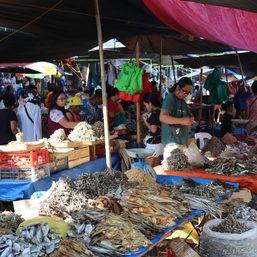SUMMARY
This is AI generated summarization, which may have errors. For context, always refer to the full article.

The weak United States dollar presents opportunities for the Philippines and its debt servicing, but falling revenues amid the coronavirus crisis would offset the benefits and may even result in a debt shock in 2021.
In a research note which explored a scenario of a prolonged dollar weakness, Moody’s Investors Service said countries like the Philippines, as well as Indonesia and Sri Lanka, could “reap significant savings from the weaker dollar,” as over a third of their total debt are foreign.
“Through 2021, we project a worsening in debt affordability, as measured by interest payments as a share of revenue, driven by higher debt-servicing costs associated with the large increases in debt as governments ramp up stimulus spending amid simultaneously large declines in revenue,” Moody’s said.
“The deterioration in fiscal metrics resulting from the pandemic shock more than offsets the potential benefit.”
The Philippine peso is among the world’s best performing currencies, supported mainly by a weak economy. So far, it has appreciated by 4% against the US dollar, largely due to low imports reducing dollar demand.
As of August, the country’s outstanding borrowings stood at P9.615 trillion, P2.9 trillion of which is external debt, data from the Bureau of the Treasury showed.
The country’s total interest payments as percentage of government revenues is at 14%.
Debt as percentage of gross domestic product stood at 48.1%, as of June.
As debt rises, government revenues fall. Collections of the Bureau of Internal Revenue and the Bureau of Customs fell by 18% as of end-August, with businesses shut down or operating on limited capacity.
Private companies
Moody’s also noted that the weak dollar would result in mixed results for Asian banks.
Asian financial institutions would benefit from the weak dollar, as it allows central banks to lower interest rates and pump liquidity.
The decline in funding costs has also offset pressure brought about by lower loan yields.
Banks in the Philippines, as well as Singapore and Thailand, have already “taken advantage of the weaker US dollar and low interest rate environment to issue dollar-denominated bonds to shore up their capital and secure longer-term financing at lower rates.”
“On the other hand, a weaker US dollar will affect companies with significant US dollar revenue bases, which will in turn weaken the banks’ asset quality,” Moody’s said. – Rappler.com
Add a comment
How does this make you feel?



![[Time Trowel] Evolution and the sneakiness of COVID](https://www.rappler.com/tachyon/2024/02/tl-evolution-covid.jpg?resize=257%2C257&crop=455px%2C0px%2C1080px%2C1080px)


![[ANALYSIS] A new advocacy in race to financial literacy](https://www.rappler.com/tachyon/2024/04/advocacy-race-financial-literacy-April-19-2024.jpg?resize=257%2C257&crop_strategy=attention)


![[In This Economy] Can the PH become an upper-middle income country within this lifetime?](https://www.rappler.com/tachyon/2024/04/tl-ph-upper-income-country-04052024.jpg?resize=257%2C257&crop=295px%2C0px%2C720px%2C720px)

There are no comments yet. Add your comment to start the conversation.